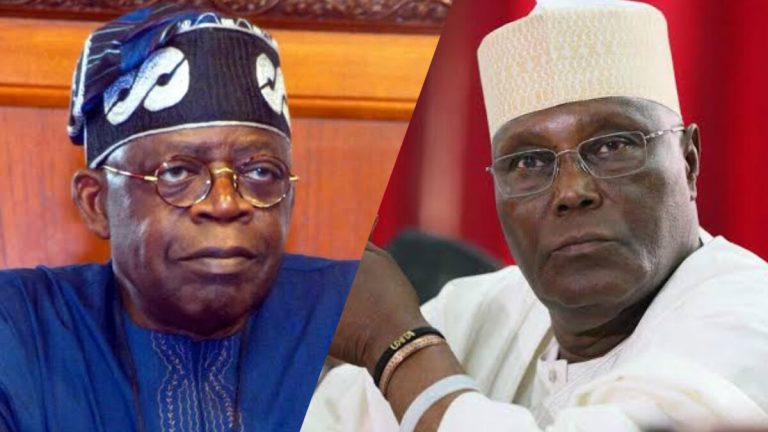Atiku Abubakar, the 2023 presidential candidate of the Peoples Democratic Party (PDP), criticized President Bola Tinubu’s policies on Tuesday, claiming they have impoverished the poor and bankrupted the rich. To improve the situation, Atiku proposed six steps for Tinubu to take.
Tinubu, who assumed office on May 29, 2023, with a “Renewed Hope” agenda, marks his first year in office today. In a statement on Tuesday, Atiku reviewed the administration’s performance, arguing that the All Progressives Congress (APC)-led government has failed to present effective economic remodeling plans.
Atiku, who has previously criticized the administration’s policies, suggested that Tinubu should:
1. **Pause and Reflect:** Undertake a comprehensive review of the 2024 budget within the new reform framework.
2. **Revise the Social Investment Programme:** Adjust the program to mitigate the impact of current policies on vulnerable households.
3. **Avoid New Taxes:** Refrain from introducing new taxes or increasing tax rates.
4. **Clarify Fuel Subsidy Regime:** Provide detailed information on fiscal commitments and benefits from the fuel subsidy reform and its impact on the Federation Accounts.
5. **Address Security Issues:** Take decisive action to tackle insecurity.
6. **Economic Remodeling:** Develop and implement clear strategies for economic reform with proper sequencing to avoid negative consequences.
Atiku criticized Tinubu for not having a clear economic remodeling plan and for implementing a mix of policies that have failed to deliver promised economic growth and poverty alleviation.
“Tinubu’s policies have not created prosperity but instead have worsened the economic situation,” Atiku said. He pointed out that the administration has eliminated PMS subsidies, unified the multiple official FX windows, tightened monetary policy, hiked monetary policy rates, introduced cost-reflective electricity tariffs, and imposed a cybersecurity tax.
These policies, according to Atiku, have resulted in the highest inflation rate in nearly three decades, with food prices soaring beyond the reach of ordinary citizens. He noted that the annual inflation rate stood at 33.69% in April, with food inflation at 40.53%.
Atiku also highlighted the economic hardships faced by Nigerians, including a significant increase in the cost of basic necessities and transport fares. He emphasized that the removal of PMS subsidies and the imposition of additional taxes had not been accompanied by an increase in the minimum wage or effective social investment programs.
“The current policies have created a hostile environment for businesses, leading to the exit of several multinational companies and the loss of thousands of jobs,” Atiku stated. He criticized the administration for not addressing the negative consequences of its policies on the manufacturing sector and the overall economy.
Atiku urged Tinubu to focus on structural economic reforms, emphasizing the need for a comprehensive review of the 2024 budget to address rising commodity prices and support vulnerable households. He also warned against any attempts to increase VAT rates or introduce new excise taxes, arguing that such measures would only exacerbate the current economic challenges.
In conclusion, Atiku called for immediate action to address insecurity, which has severely impacted agricultural production and contributed to food scarcity in the country. He stressed the need for coordinated efforts to enhance agricultural output and ensure food security.
“The state of pervasive insecurity continues to adversely impact agricultural production, especially in the northern parts of the country,” Atiku said, warning that millions of Nigerians could face severe food shortages in the coming months if the situation is not addressed.




